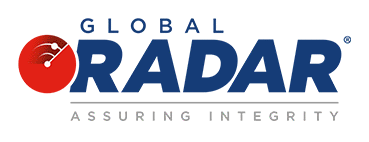The global used-car market has reached an unprecedented high since the onset of the COVID pandemic. With mass shortages in semiconductor chip availability and auto factories struggling to restart their normal manufacturing processes in a timely manner, the production of new vehicles across the United States has all but drawn to a halt, significantly limiting the options available to consumers in need of reliable transportation. The boom has seen used car dealerships moving more units than ever before, with many viewing this market riddled with gauged prices as an indicator of the potential path of economic inflation. Analysts have also begun to identify a correlation between the industry and the growing avenues of illicit financial activity seen both domestically and abroad. Right or wrong, used car sales have long been synonymous with questionable characters and backhanded dealings, and it appears that recent developments in this industry have again begun to lend to this stereotype. Actual criminals are now using this cash-heavy business to help launder ill-gotten funds, and early returns suggest these practices will only continue to grow in prevalence in years to come.
If the sentiment of honor among thieves truly exists, nowhere would it apply more appropriately than to money laundering through used cars sales. This practice appears to be one of the only ways in which to clean dirty money and return these funds into circulation without truly scamming or victimizing anyone. This concept also contributes to the appeal of this medium to financial criminals seeking to avoid unnecessary attention from the proper authorities. The process is truly quite simple, as once these bad actors get a hold of illegal funds one way or another, they will use the vehicles to effectively turn their cash into an asset which helps to disguise the origin of the very funds used to make purchases. All things considered, it is extremely difficult to trace back the source of laundering activity when dealing with cash (specifically cash payments <$10,000), given that there is no digital record as is seen with credit/debit transactions, making the paper trail far more difficult to follow. Even so, the verification process for individuals paying in cash at dealerships does not extend much further than identity verification with a driver’s license or passport – each of which can easily be falsified. Further compounding matters with respect to used car sales/purchases is the fact that there is no specific legislation governing the reporting of transactions of this variety. This is concerning, especially when considering that most other industries (such as precious metals, real estate, casinos, securities, insurance, and other money service businesses) all have regulations in place to ensure cash transactions are reported.
Many in the financial sphere believe that neither the American government nor its international counterparts will address what is becoming a growing problem because it does not garner much public attention, and generally the proceeds of the laundering efforts pale in comparison to that of the crimes that actually make fraudsters their money. While every once in a while a story of a super-luxury vehicle being purchased with stolen cash (generally alongside other large scale purchases such as real estate) will make headlines, far more often criminals will launder money through lower value vehicles because these transactions attract far less attention. Of course, if the governments of the world claiming to be putting their best foot forward in the fight against illicit finance such as money laundering and terror financing turn a blind eye to activity of this variety, it is highly doubtful that the dealerships themselves – many of which are seeing an uptick in business and a boost to their bottom-line as a result – will work to end this trend. If individuals are lining up to buy a dealership’s clunkers with large sums of cash, one cannot reasonably expect the salesperson to begin to ask too many questions as to where or how their customer acquired the funds.
Until regulatory watchdogs and government officials begin to examine the used car epidemic more seriously and pass legislation to increase transparency across the industry, illicit financial flows are likely to continue unimpeded across domestic and international borders. As such, financial institutions must remain vigilant if not wary of doing business with used car dealerships or clients in the business of imports/exports of motor vehicles.

